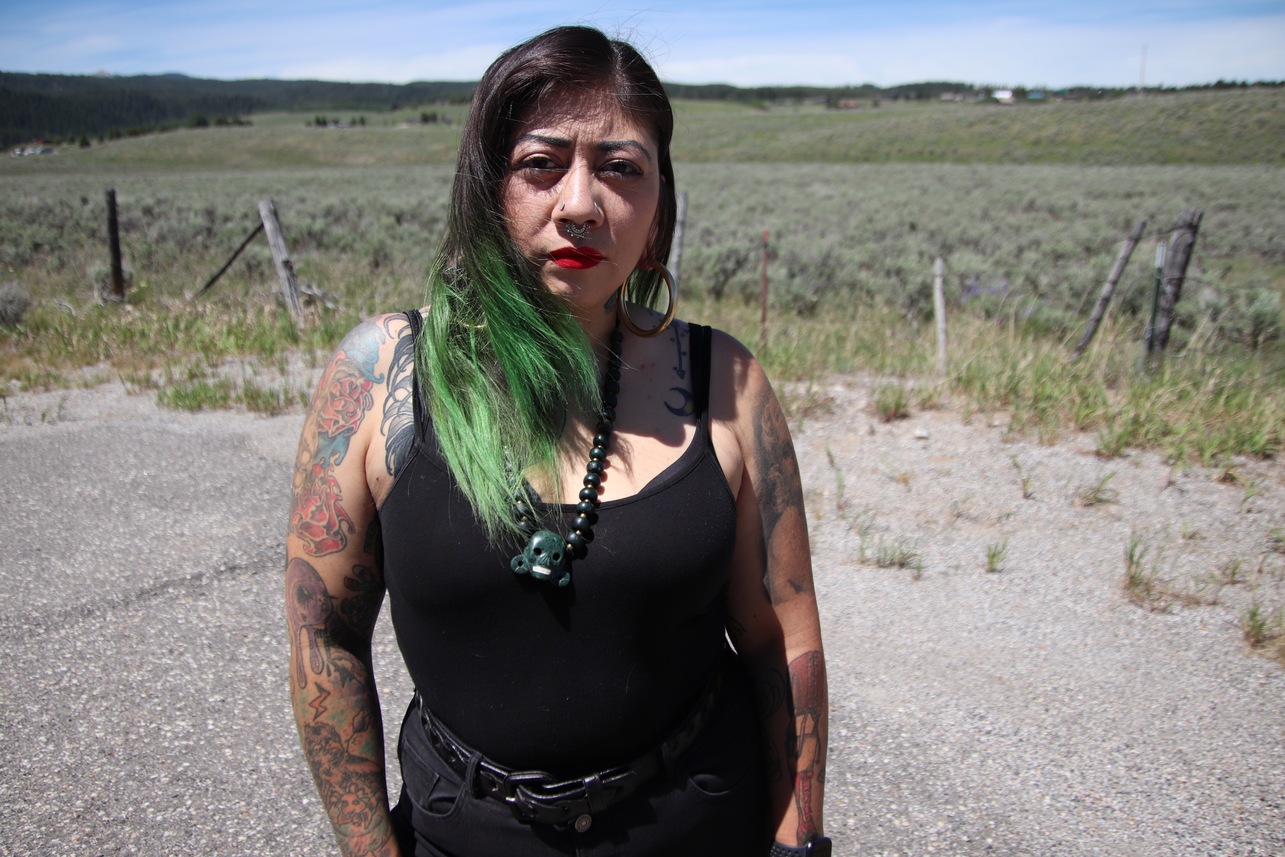
'Cenizas': The harsh reality of trauma
Cynthia Guardado’s poetry questions the meaning of a homeland as she navigates the U.S. and El Salvador.
As a kid, Cynthia Guardado doesn’t recall saying she would become a writer or a college teacher.
“As many kids did when we learned about the president of the United States, I used to say that I wanted to be president,” she joked in a recent interview with AL DÍA.
The daughter of a couple of immigrants who escaped from El Salvador in the late 80s, Guardado grew up in Los Angeles, California, and became the first generation in her family to receive a college education and become an educator and writer. They're two professions that as a kid she never considered as a career for herself, “mostly because I never saw anyone who was like me in these positions,” she said.
However, things changed and Guardado is nowadays an associate professor of English at Fullerton College, California, and the author of two poetry books. Her latest, Cenizas (University of Arizona Press, 2022), a finalist for the National Poetry Series 2019, offers an arresting portrait of a Salvadoran family whose lives have been shaped by the upheavals of global politics. The speaker of these poems — the daughter of Salvadoran immigrants, like herself — questions the meaning of homeland as she navigates life in the United States while remaining tethered to El Salvador by the long shadows cast by personal and public history.

“I think, honestly, that poetry found me. Even though I was writing poetry after I took an introduction to poetry at University of California Santa Cruz, I wasn’t fully connected to it, I didn’t really allow myself to open to it,” she explained. Suddenly, about a year after she graduated from college, Guardado experienced the loss:
“My aunt, an alcoholic, died in the house and suddenly my only way to process what happened was to write. I started writing, and different traumas from my family about alcoholism, my grandfather included, started to surface. That was the beginning of the journey, the point when I started writing about family and considering writing as an option for my future,” she said.
The fact that she was writing about the family and El Salvador was something that made her parents happy.
“My family has always been very supportive of my decision to follow an education, regardless of what path I took (she holds an MFA from California State University)”, she added. Their support, Guardado added, comes from the fact that back in El Salvador his father was only able to get a 4th grade education and her mother only completed high school. “She always wanted to go to university, but it was not possible due to the poverty they lived in El Salvador,” Guardado recalled.
RELATED CONTENT
Guardado crafted the poems in Cenizas over a 10-year period, often traveling to El Salvador for research and to conduct interviews. The Salvadoran Civil War haunts the pages of the collection as it unflinchingly explores war, its aftermath, and the bittersweet legacies passed down from one generation to the next. The poems mourn those who were lost and honor the strength of the speaker’s ancestors.
“All my people have been born from the ashes of volcanoes,” she writes, invoking a family lineage that has endured the atrocities committed against them. Even so, El Salvador keeps pulling the speaker back — and despite warnings of danger, she still manages to find beauty among the ruins.
The need to be critical
On her Instagram, Guardado defines herself as a “Salvadoreña/EE.UU queer, poet, consultant and professor,” and doesn’t hide her strong social justice activism.
“Lately, I’ve been feeling really hopeful about my job and the work of dismantling institutional racism. I know I shouldn’t call it too soon, but I have a good feeling about this semester,” she posted recently under a portrait of herself in her college office.
“I don’t shy away from writing critical work about US society, about the US government or the Salvadoran government. I think it’s necessary to be critical and to bring awareness about these issues, even if many people don’t want to hear about them”, she added. Guardado also makes sure these issues are brought to the class and her students are engaged and have models of activism “that may inspire them to speak out about issues they see in society or in their lives,” she said.
In addition to teaching all English disciplines “from a social justice radical framework,” Guardado is also Editor-in-Chief of LiveWire, an online literary magazine from Fullerton College and keeps writing poetry. In 2017, she published Endeavor, a collection of poetry about survival. The poems are centered around women and detail the horrors of alcoholism, oppression, and violence, pushing the reader to face the harsh reality of trauma in different aspects of our society.












LEAVE A COMMENT: